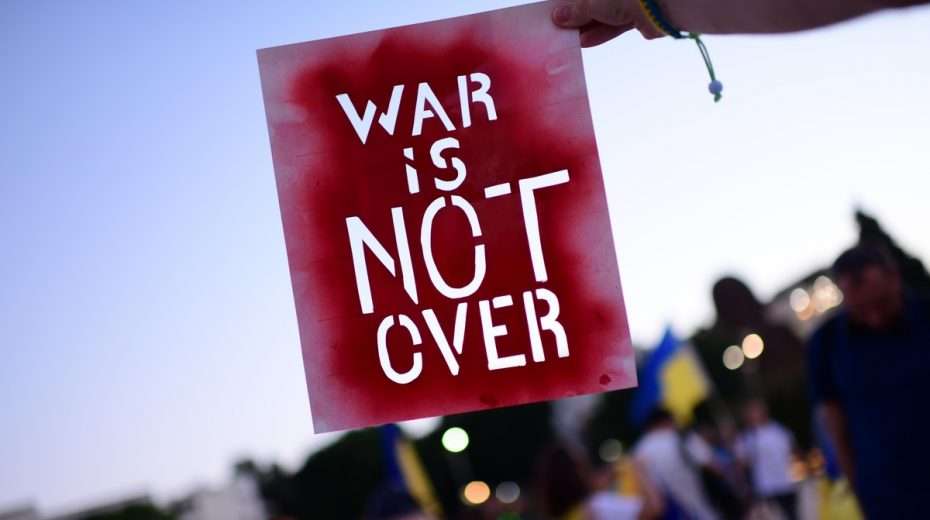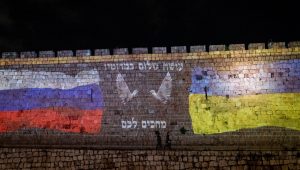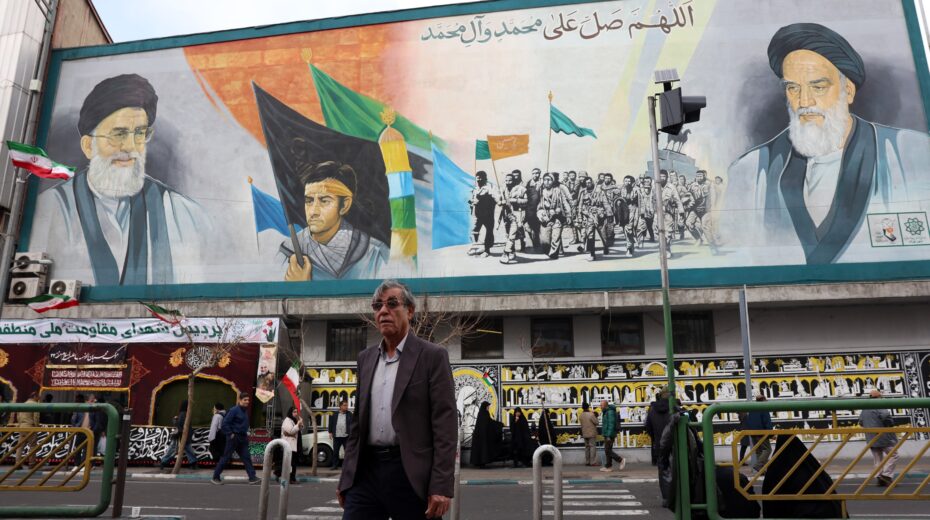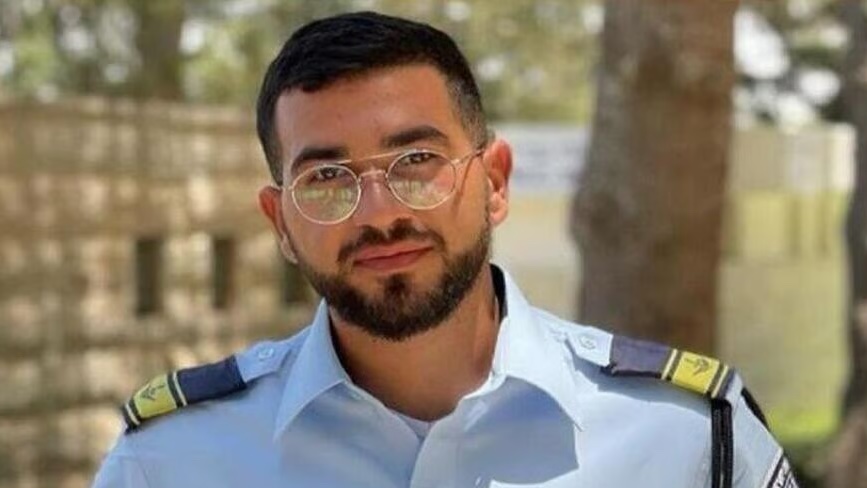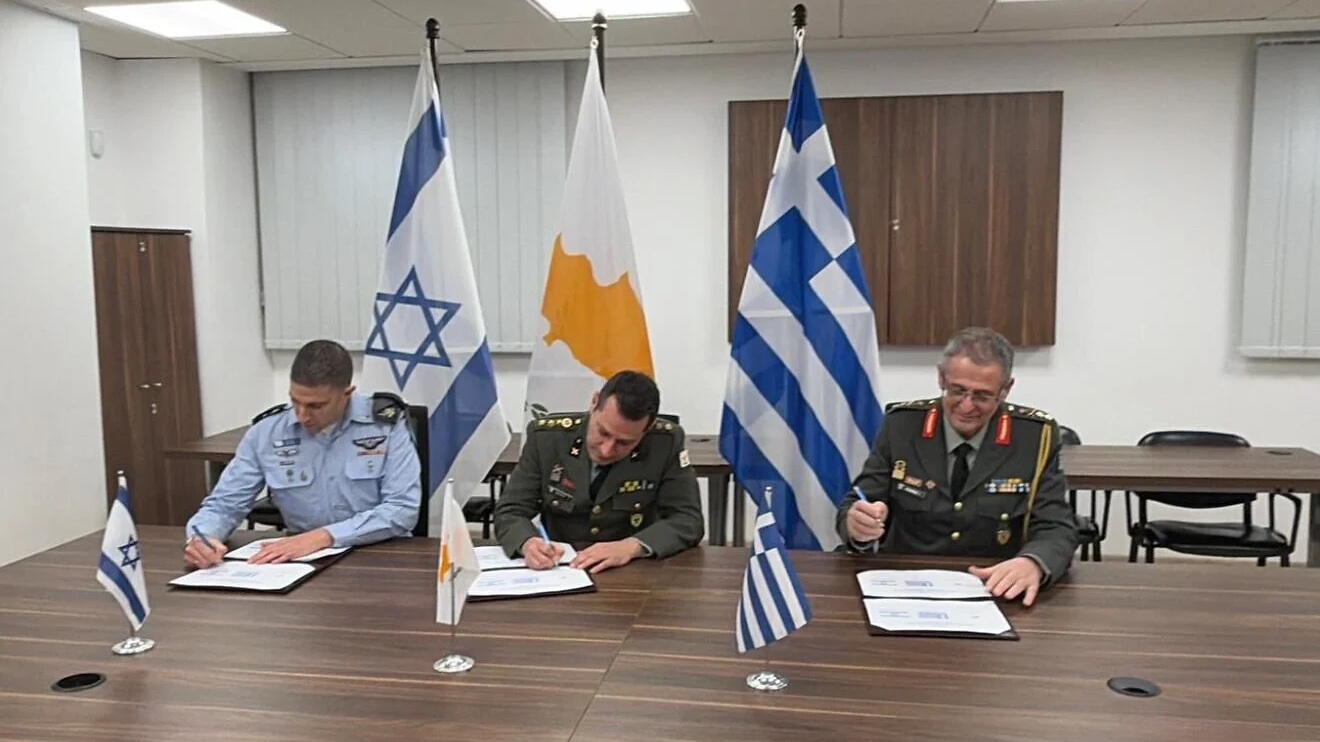This analysis is about the relations between Israel on the one hand and Ukraine and Russia on the other. Those relations have become complicated after the Russian invasion of Ukraine and this could have other far-reaching implications for Israel’s overall interests, as we shall see.
Ukraine’s President Volodymyr Zelensky was named the world’s most influential Jew by the editors of The Jerusalem Post last weekend.
The English-language Israeli newspaper publishes a list of the 50 most influential Jews in the world every Jewish New Year, and this was the first time in a long period that an Israeli prime minister had not been given the top spot.
Caretaker Prime Minister Yair Lapid was ranked number two, while ex-Prime Minister Benjamin Netanyahu took the fifth spot on the list.
Zelensky, however, has so far had little influence on Israeli policy toward the war between Russia and Ukraine.
The leader of the war-ravaged country has repeatedly criticized Israel for refusing to supply weapons to Ukraine.
This mainly concerns defensive weapons, such as the successful Iron Dome anti-missile defense shield, and unmanned aerial vehicles (UAVs) that could counterbalance the drones that Iran is now supplying to Russia on a large scale.
Zelensky shocked
Zelensky said in an interview with French reporters last week that he was “shocked” by Israel’s refusal to supply the Iron Dome system to Ukraine.
After all, Iron Dome could save countless civilian lives just as it did on a large scale in Israel’s wars against Hamas, Palestinian Islamic Jihad and Hezbollah.
“I don’t know what happened to Israel, to be frank, honestly I’m shocked because I can’t understand why they can’t give us air defense,” Zelensky said during the interview.
Since March when the war began, the President of Ukraine has been requesting Israel to provide the Iron Dome system because of the deadly Russian missile strikes on military and civilian targets.
Zelensky indicated he understood the dilemma Israel faces because of the Russian presence in Syria, but said all talks with the Israeli leadership “had done nothing” to help Ukraine (militarily).
Intelligence on Iranian drones
The government of Ukraine has now asked Israel for intelligence on Iranian UAVs that Russia recently started to use extensively in its war against the former Soviet republic.
This concerns the Shahed 36 drone which is also referred to as the “kamikaze UAV” due to the loitering ammunition the aircraft releases on its target.
Russia now has a large fleet of these Iranian drones and they pose a threat to the balance of power in the skies above Ukraine.
Over the past few days Russia has launched dozens of the Shahed 36 drones from occupied Crimea.
Some of these drones targeted the city of Uman, where the tomb of Rabbi Nachman is located. Thousands of Jews gather at Nachman’s tomb each year during Rosh Hashanah, the Jewish New Year. There were no reports of casualties, but both the Israeli and the Ukrainian governments have been warning Jews not to travel to Uman this year since the Russians deliberately target sites where crowds are gathering.
Meanwhile, during a hitherto undisclosed visit to Kyiv in early September, Israeli diplomat Simona Halperin spoke to Maksym Subkh, Zelensky’s Middle East envoy, about providing Ukraine with badly needed intelligence on the Iranian drones.
An unnamed official later told reporters in Kyiv that the Israelis had given too little information and that he now really hoped there would be a “dialogue channel” between Israel and the government of Ukraine.
Lapid and Bennett’s approach to the war
In his new role as Prime Minister of Israel, Lapid has so far been remarkably quiet about Russia’s invasion of Ukraine and appears to continue the policy of delivering humanitarian aid only to Kyiv.
The government in Jerusalem announced last week that Israeli hospitals would begin treating seriously wounded Ukrainian soldiers and that initially, 20 soldiers will be flown to Israel, according to local media.
Shortly after Russia invaded Ukraine, Israel appeared to be emerging as an important mediator between the two states.
Then Prime Minister Naftali Bennett was extremely cautious in his criticism of Russia apparently because of the long-standing good relationship with President Vladimir Putin.
Bennett, like his predecessor Benyamin Netanyahu, realized that good relations with Putin were essential for Israel and had a lengthy meeting with the Russian President in Sochi on the Black Sea at the beginning of his premiership.
The good Israeli relations with both Russia and Ukraine seemed to make Bennett an ideal mediator at the beginning of the war, but the dire political reality in Israel and the situation on the ground in Ukraine, where Russia was caught committing war crimes, put an abrupt end to the mediation process.
Lapid, in his role as Foreign Minister, was less cautious at the time and soon accused Russia of committing “war crimes against a defenseless civilian population,” while Israel under Bennett and Lapid also voted in favor of UN resolutions condemning Russia for attacking Ukraine and in favor of suspending Russia’s membership of the UN Human Rights Council.
See: Israeli Ministers Accuse Russia of War Crimes in Ukraine
For Zelensky, however, Israel’s behavior toward his country’s conflict with Russia has been disappointing from the start.
The President of Ukraine, like Lapid, is a second-generation Holocaust victim because his grandparents were murdered by the Nazis, and this may explain why the Jewish President of Ukraine expects more from his brothers in Israel.
Also during Bennett’s term in office, Zelensky criticized the Israeli government by saying that “Bennett was not draped in the flag of Ukraine.”
During a telephone conversation with Lapid on Sept. 1, the leader of Ukraine made it clear that he still expects Israel to join the sanctions regime that Western countries, including the United States, have imposed on Russia.
Iran and Russia in Syria
However, it seems very likely that Israel, under Lapid, will refrain from doing so, and that has much to do with Syria and Iran.
The Israeli Air Force (IAF) needs the Russian military in Syria for its ongoing strikes against Iran-related targets in the country.
The Russians have several S-300 antiaircraft defense batteries active in Syria, but have used them only once so far (in May) against Israeli warplanes carrying out strikes against arms shipments from Iran.
There is also a hotline between the IDF and the Russian High Command in Syria with which Israel informs the Russians shortly before an imminent strike against a target in Syria.
The freedom of movement of the IAF in the skies above Syria is therefore of crucial importance to the ongoing conflict with Iran, and further deterioration of relations with Russia could significantly damage Israel’s campaign against the Islamic Republic.
Crisis over Jewish Agency
Then there is the crisis with Russia over the activities of the Jewish Agency, which regulates the immigration of Russian Jews and their relatives.
A lawsuit is currently pending against the branch of the Jewish Agency in Russia for alleged violations of Russian law.
This could eventually lead to the revocation of the agency’s license, which, according to Lapid, would in turn negatively affect bilateral relations between Russia and Israel as well as the immigration of Russian Jews.
See: Israel-Russia Relations on the Brink Over Jewish Agency Feud
The court proceedings have dragged on after the Russian court that heard the case postponed its ruling twice.
Right now, there has been a sharp rise in requests to make ‘aliyah’ from both Russian Jews and their brothers in Ukraine.
Both Lapid and Putin have been silent on the matter of the Jewish Agency, most likely because both leaders do not want to allow the already tense relations between Russia and Israel to deteriorate into a full-blown crisis.
Israel is, therefore, walking a very thin line when it comes to its current relations with both Russia and Ukraine, and is expected to continue its policy of laying low.


